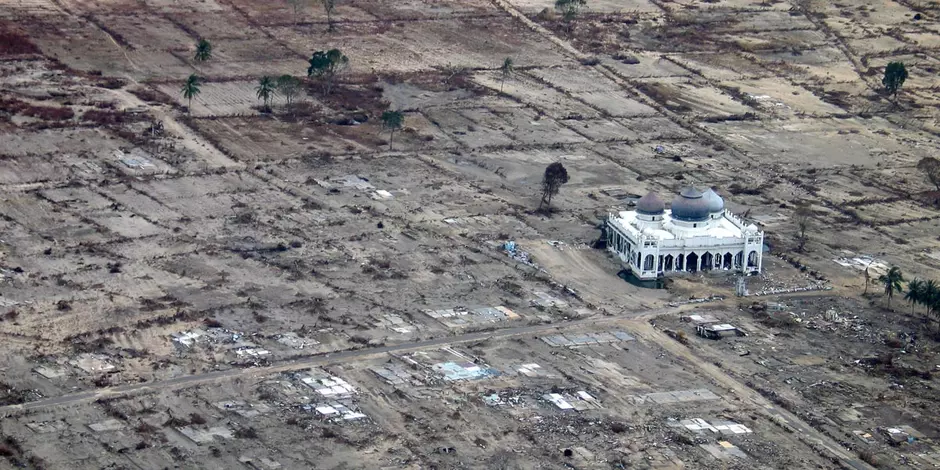
Humanitarian and Development
Place
Maldive islands
Sponsor
Maguy Bourbigot
Grant(s)
10,000 euro to the Selection Committee at 2005/12/06
Project leader
Veoliaforce
« The financial aid granted by Fondation Veolia was an indispensable complement to the technical resources released to the Republic of the Maldives by Veolia and the considerable contribution of the employees, invested both in France and on site. »
Maguy Bourbigot
In early February 2005, the humanitarian action division of the French Ministry of Foreign Affairs (DAH - MAE) answered an urgent summons from the Republic of the Maldives.
In this country, made up of nearly 300 islands, some of them minute, the tsunami of December 26, 2004 caused widespread destruction, as it did elsewhere. But in the Maldives, for certain population having few resources and living in isolation on tiny islands normally closed to foreign visitors, the situation was untenable.
Not only did the tsunami sweep away everything in its path, but it effectively destroyed the few natural freshwater springs.
International Mobilization at Veolia
Faced with this situation, the solution was to operate coastal seawater desalination plants running on the reverse osmosis technology (such units are widely used in the Persian Gulf countries). The DAH - MAE accordingly turned (among others) to Veolia.
The company promptly mobilized its international experts and particularly the engineers of Veoliaforce, as well as a subsidiary, Berkefeld, established in Dubai and thoroughly familiar with the processes involved. Between April and late summer of 2005, the first two "osmosers" were installed on the islands of Dharavandhoo (north of Malé) and Dhivamigili (south of Malé). The wells were drilled on the beaches, the submersible pumps positioned, and solid shelters built to accommodate and protect the desalination units. To finance a third osmoser on the island of Maabaidhoo, in the Laamu atoll, one of the hardest hit by the tsunami, Veoliaforce secured the support of Veoliaforce Allemagne (and particularly the spontaneous donations received from the German employees). This was augmented by the grant of 10 000 euros from the Veolia foundation, including the sums collected from the French employees.

